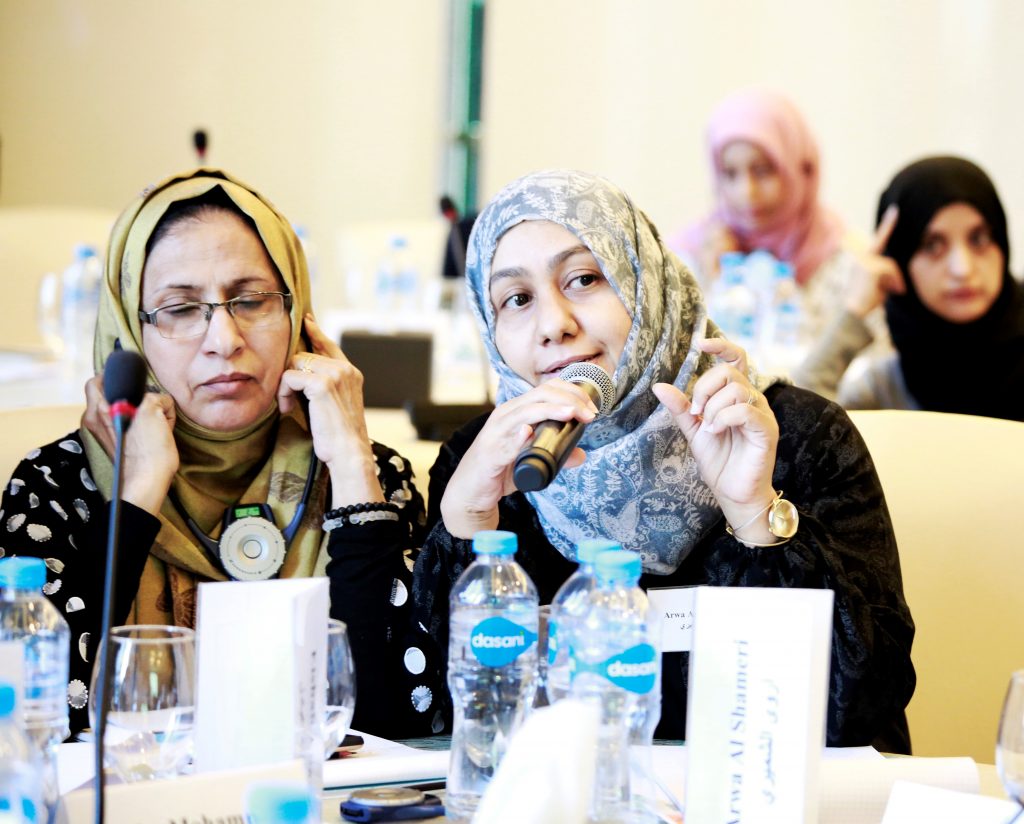Statement: Women should be included in the Yemeni peace process
Sustainable peace in Yemen will not be achieved if Yemeni women are not included in the peace process, the European Union and CMI say in a joint statement. The EU, CMI and our local partner DeepRoot recently organized a workshop that concluded with a number of concrete recommendations to move forward.

Aisha Thaleb and Arwa Alshamiri participated in the Yemeni women Conference in Cairo.
The statement points out that, since the 2011 uprising, Yemeni women have had an important role in bridging divides and acting as agents of change in a country affected by years of war. However, this has not translated into meaningful inclusion of women in the peace process or in political decision-making. The statement emphasises that “sustainable peace in Yemen will not be achieved if Yemeni women from across the country are not included in political negotiations and decision-making processes at all levels of society”.
The EU, CMI and our local partner DeepRoot organized a Yemeni women Conference in Cairo from 9 to 11 April to develop key recommendations for Yemenis and the international community on how to ensure women’s inclusion and meaningful participation in the peace process and, more broadly, in decision-making. The conference provided inputs to the Office of the UN Special Envoy of the Secretary General to Yemen (OSESGY).
6 recommendations deemed as having the highest importance
The workshop concluded with a number of concrete recommendations. These recommendations addressed how to improve and support the various mechanisms of inclusion in Yemen, how to strengthen women’s contribution to peace and dialogue initiatives at the local level, in decision-making processes at governorate level, in political party structures and in the constitutional amendment and electoral processes.
The participants prioritized six recommendations deemed as having the highest importance:
- Women’s participation and inclusion in the peace process should be strengthened at all tracks
- Coordination and collaboration between women’s networks and the OSESGY should be further enhanced
- Strategies and mechanisms for women to foster political partnerships with key influential decision-makers should be developed
- The mandate and role of the Technical Advisory Group should be further clarified
- Support and train women to act as intermediaries and mediators between the conflict parties
- Yemeni women should come together to strengthen their voices to find durable solutions for the peace agreement
Read here a full list of recommendations and here an accompanying letter from the workshop in Cairo.

CMI’s work in Yemen is funded by the European Union.